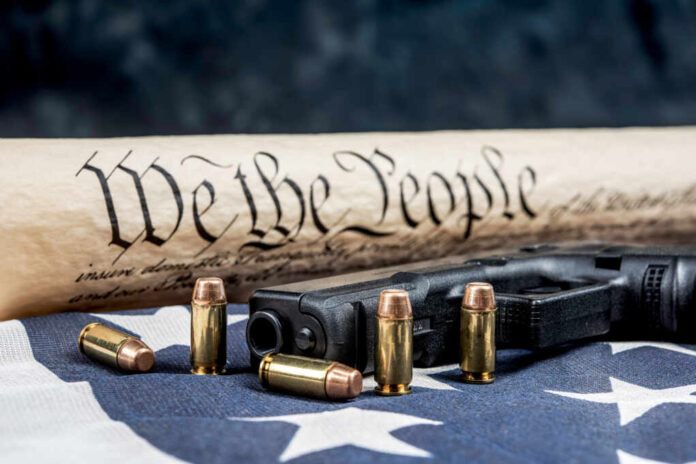
A federal appeals court on Friday blocked a portion of a New York State gun control law that requires concealed carry permit applicants to disclose their social media accounts due to free speech concerns.
“Although the review of public social media posts by a licensing officer poses no constitutional difficulties, requiring applicants to disclose even pseudonymous names under which they post online imposes an impermissible infringement on Second Amendment rights that is unsupported by analogues in the historical record and moreover presents serious First Amendment concerns,” the court wrote.
New York’s Concealed Carry Improvement Act previously required gun license applicants to submit a list of former and current social media accounts they managed over the past three years for state officials to review.
Though the social media rule was blocked, the three-judge panel court determined that it was “not facially unconstitutional” for the state to require applicants to have “good moral character.”
“A reasoned denial of a carry license to a person who, if armed, would pose a danger to themselves, others, or to the public is consistent with the well-recognized historical tradition of preventing dangerous individuals from possessing weapons,” the court wrote.
The court also blocked the state from enforcing restrictions on carrying concealed firearms on private property that is accessible to the public and restrictions on carrying in houses of worship.
Radical far left secular extremist @GovKathyHochul and her SS henchmen were shot down by US Court of Appeals, she called the court conservative lawyers and groups names, just like evil Demonrats do, name calling, identity politics, attacking w/ violence https://t.co/mLbZ898aQ7
— Merchant of Demonrats 🇺🇸🏴☠️ (@Mr_Maga2022) December 11, 2023
The 2nd U.S. Circuit Court of Appeals’ decision marked the first time a federal appeals court has ruled on whether licensed gun owners can carry firearms since the U.S. The Supreme Court issued a landmark ruling last year expanding gun rights.
While gun rights activists saw this as a step in the right direction, they still believe that they still have a long way to go.
Some great wins here for NY's lawful gun owners. The bottom line is "shall not be infringed" means "shall not be infringed" and placing more restrictions on the #2ndAmendment is only hurting law-abiding citizens & not solving any of our problems.https://t.co/SCqrQbFcca
— Rob Ortt (@SenatorOrtt) December 11, 2023
Sam Paredes, a member of the board of directors for the Gun Owners Foundation, expressed his frustration that the court allowed the “good moral character” provision to remain in place and indicated that his group may seek relief from the Supreme Court.
“It’s encouraging that the Court blocked the intrusive social media provisions, but just as intrusive are the processes needed to confirm someone is ‘of good moral character,’ which the Court has inexplicably chosen to uphold,” Paredes said in a statement. “Frustratingly, much of this Court’s opinion reads like an insubordinate rebuke of the Supreme Court, which is a disgrace and cannot be allowed to stand. We are weighing action at the nation’s High Court.”













